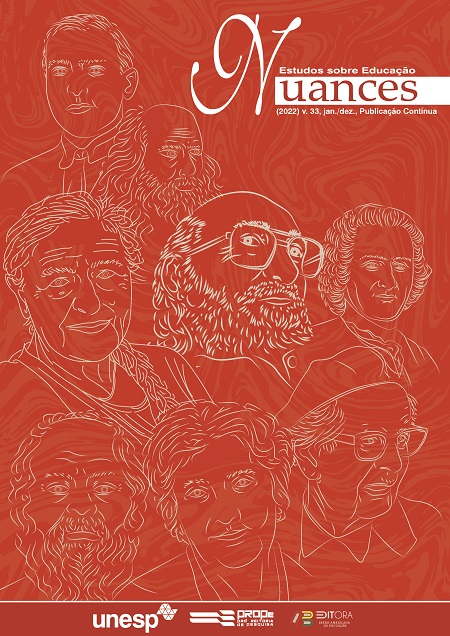Socio-psychological adaptation of students when choosing the direction of general physical training in the educational and training process
DOI :
https://doi.org/10.32930/nuances.v33i00.9747Mots-clés :
Characteristics of socio-psychological adaptation, Choice, SatisfactionRésumé
The study examines the distinguishing features of socio-psychological adaptation of students in the Industrial University of Tyumen in the context of physical training in association with the satisfaction with the choice of the direction of general physical training. The features of socio-psychological adaptation are assessed by the Rogers-Dymond Test of Personal Adjustment and examined. The study reveals the relationship between the characteristics of socio-psychological adaptation and satisfaction with the choice of direction of general physical training. Students’ satisfaction with their choice in the process of physical training shows a pronounced positive correlation with self-acceptance, internality, and emotional comfort. Dissatisfaction with the choice strongly correlates with escapism (avoidance of problems). As a result, the students satisfied with their choice are found to take on responsibility more often, show greater self-acceptance and acceptance of others, and more frequently experience emotional comfort and desire to dominate.
Téléchargements
Références
ANDREEVA, G. M. Sotsialnaia psikhologiia. Moscow: Aspekt-Press, 2009. 362 p.
ARAKI, M. E. Polymathy: A new outlook. Journal of Genius and Eminence, v. 3, n. 1, p. 66-82, 2018.
CHERNOBROVKINA, C. V.; GRUSHKO, N. V. Lichnostnye i motivatsionnye faktory sotsialno-psikhologicheskoi adaptatsii studentov vuza s ogranichennymi vozmozhnostiami zdorovia. Herald of Omsk University. Series “Psychology”, n. 3, p. 39-51, 2017.
CHINYU MOZGI I MEBEL'. Oleg Gennadievich Matveev-Gendrikson, family psychologist and restorer. Oprosnik sotsialno-psikhologicheskoi adaptatsii R. Daimonda - K. Rozhdersa. 1970. Available in: http://smogendrr.ru/simplepsy/oprosnik-sotsialno-psihologicheskoj-adaptatsii-r-dajmonda-k-rodzhersa. Access: 8 Oct. 2021.
COLANGELO, N.; WOOD, S. Counseling the gifted: Past, present, and future directions. Journal of Counsel and Development, v. 93, n. 2, p. 133-142, 2015a.
COLANGELO, N.; WOOD, S. Introduction to the special section: Counseling the gifted individual. Journal of Counsel and Development, v. 93, n. 2, p. 131-132, 2015b.
DAVYDOV, V. V. Vidy obobshcheniia v obuchenii: Logiko-psikhologicheskie problemy postroeniia uchebnykh predmetov. 2. ed. Moscow: Aspekt-Press; Psychology Institute of the Russian Academy of Education, 2000. 478 p.
EXTREMERA, N.; REY, L. Ability emotional intelligence and life satisfaction: Positive and negative affect as mediators. Journal of Personality and Individual Differences, v. 102, p. 98-101, 2016.
GREEN, M. J. Helping build lives: Career and life development of gifted and talented students. Journal of Professional School Counseling, v. 1, n. 10, p. 34-42, 2006.
IAKOVLEVA, T. N. Mnenie studencheskoi molodezhi ob udovletvorennosti professionalnym vyborom i kachestvom obucheniia v vuze. In: MURZINA, Z. V.; NIKOLAEVA, G. V.; RUSSKOV, S. P. (Eds.). Proceedings of the International Scientific-Practical Conference “Sovremennye tendentsii razvitiia sistemy obrazovaniia”. Cheboksary: Publishing House Sreda, 2018. p. 218-223.
IDOBAEVA, O. A. K postroeniiu modeli issledovaniia psikhologicheskogo blagopoluchiia lichnosti: psikhologo-razvitiinyi i psikhologo-pedagogicheskii aspekty. Tomsk State University Journal, n. 351, p. 128-133, 2011.
KARAPETIAN, L. V. Prediktory emotsionalno-lichnostnogo blagopoluchiia. Chast 1: internalnye pozitivnye prediktory [Predictors of emotional and personal well-being. Part 1: internal positive predictors]. Izvestia. Ural Federal University Journal. Series 1: Problems of Education, Science and Culture, n. 2, p. 65-73, 2018.
KRYSKO, V. G. Sotsialnaia psikhologiia: Skhemy i kommentarii. Moscow: VLADOSPRESS, 2001. 208 p.
KULIK, A. A.; AKIMOVA, A. A. Subektivnoe blagopoluchie molodezhi (na primere studentov pervykh i vypusknykh kursov). Scholarly Notes of Transbaikal State University, v. 2, n. 11, p. 170-182, 2016.
KULIK, A. A.; NAUMOVA, V. A. Vzaimosviaz psikhologicheskogo blagopoluchiia i lichnostnykh resursov na raznykh vozrastnykh etapakh. Human Capital, v. 6, n. 150, p. 103-113, 2021.
LIU, Y.; WANG, Z.; LÜ, W. Resilience and affect balance as mediators between trait emotional intelligence and life satisfaction. Journal of Personality and Individual Differences, v. 7, n. 54, p. 850-855, 2013.
SHEINOV, V. P. Sviaz emotsionalnogo intellekta, lokusa kontrolia i udovletvorennosti zhizniu. Institute of Psychology of the Russian Academy of Sciences. Social and Economic Psychology, v. 5, n. 4, p. 155-170, 2020.
TIURINA, N. V. Poniatie adaptatsii sovremennoi psikhologii. Vestnik of Astrakhan State Technical University, n. 5, p. 152-157, 2007.
TKACHENKO, N. N. Sotsialno-psikhologicheskaia adaptatsiia studentov v obrazovatelnoi srede raznogo tipa. Azimuth of Scientific Research: Pedagogy and Psychology, v. 7, n. 4, p. 358-360, 2018.
ZEER, E. F. Modernizatsiia professionalno-pedagogicheskogo obrazovaniia: Innovatsionnyi aspekt. Education and Science, n. 6, p. 44-54, 2006.
Téléchargements
Publiée
Comment citer
Numéro
Rubrique
Licence
© Nuances: estudos sobre Educação 2022

Ce travail est disponible sous licence Creative Commons Attribution - Pas d’Utilisation Commerciale 4.0 International.
Atribuição-NãoComercial
CC BY-NC
Esta licença permite que outros remixem, adaptem e criem a partir do seu trabalho para fins não comerciais, e embora os novos trabalhos tenham de lhe atribuir o devido crédito e não possam ser usados para fins comerciais, os usuários não têm de licenciar esses trabalhos derivados sob os mesmos termos.





